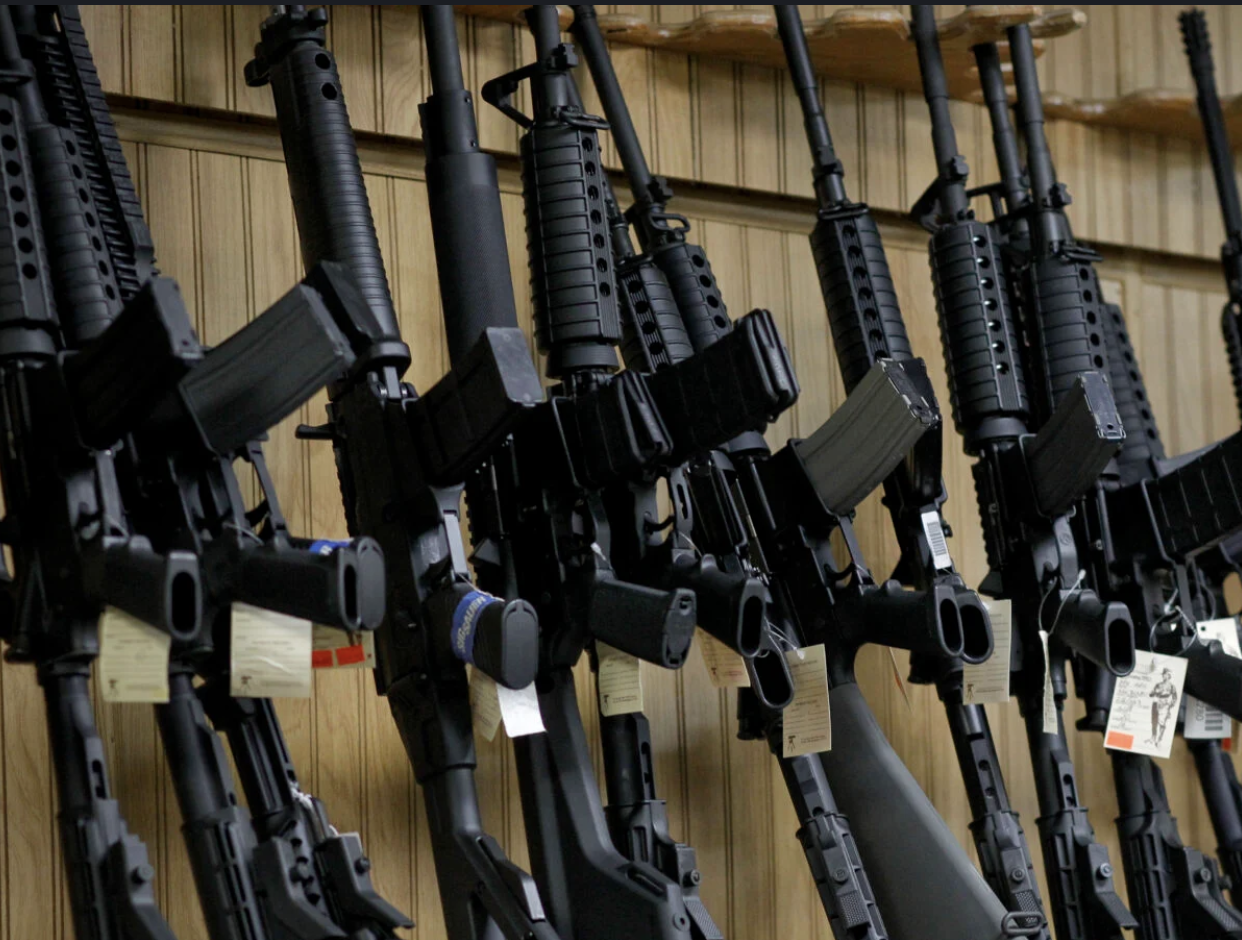The Bureau of Alcohol, Tobacco, Firearms and Explosives has been temporarily prevented by a federal appeals court from fully implementing a new rule that governs firearms with pistol braces, a common gun modification that has been used in some recent mass shootings. However, the injunction’s reach is likely to be constrained and isn’t likely to stop the ATF from applying the law across the country.
On May 23, the Texas, Louisiana, and Mississippi-based 5th Circuit Court of Appeals, which hears appeals from lower courts, issued the injunction in response to a legal challenge that sought to stop the ATF’s regulation from being implemented. Pistol braces are common additions designed to improve the stability and accuracy of pistols made in the AR-15 design.
Owners of the gadgets must comply with the rule by May 31 or remove and destroy the attachments or register the braced rifles with the ATF and pay a tax.
The appeals court appeared to limit its injunction to prohibiting enforcement just against the plaintiffs in this particular case, Mock v. Garland. William Mock and Christopher Lewis, two Texans who own braced weapons, Maxim Defense, a business that sells weapons with pistol braces, and the Firearms Policy Coalition, a pro-gun rights advocacy organization, are among the plaintiffs.
As a result, while the court considers the complaint, the ATF is probably temporarily prohibited from applying the regulation exclusively to Mock, Lewis, and Maxim Defense. The court made no mention of whether the injunction also applies to customers of Maxim Defense and other owners and sellers of pistol-braced rifles who still have to meet the deadline.
The Firearms Policy Coalition requested clarification of the injunction’s boundaries from the court after the ruling.
“We are very excited and encouraged by the Fifth Circuit’s decision this morning,” Cody J. Wisniewski, senior attorney for constitutional litigation at FPC Action Foundation, said in a statement. “We intend to ask the Court for additional information about who is covered under the injunction, but cannot stress enough just how important this decision is.”
The Trace enquired about whether the ruling would influence its efforts to enforce the regulation, but the Department of Justice and ATF declined to comment. In an email to The Trace, Erik Longnecker, the agency’s deputy chief of public affairs, stated that “ATF is unable to comment on this litigation related to short-barreled rifles.”
Assault-style pistols are weapons that combine the concealability of a handgun with the enhanced firepower and capability of rifles. Gun owners utilize pistol braces to improve the accuracy of these guns while retaining concealability.
The primary purpose of pistol braces was to steady a gun against the shooter’s arm, but they can also be used to stabilize a gun on the shoulder like a standard rifle stock. According to ATF and Congressional Research Service estimates, there may be millions of pistol braces in use.
Following a mass murder in Boulder, Colorado, in which a shooter used a gun fitted with one of the devices to kill 10 people at a grocery store, the Biden administration first suggested regulating pistol braces in 2021. The shooter who murdered six people in March at a Nashville Christian school also employed a pistol brace-equipped weapon.
Since it was first announced, the rule has faced ferocious opposition from Republicans and pro-gun rights organizations.
In accordance with the new regulations, weapons that were formerly categorized as pistols and have barrels shorter than 16 inches are now deemed short-barreled rifles. By doing this, those weapons fall under the National Firearms Act’s jurisdiction, which has had rigorous regulations on weapons like machine guns since the 1930s.
Whatever the case, the Fifth Circuit ordered that the matter be heard soon and on an expedited schedule, thus the injunction is unlikely to last for very long. One of the ongoing legal battles concerning the issue is Mock v. Garland. At least two further challenges from pro-gun rights organizations have been made, one in a different Texas case and the other in North Dakota, that may ultimately weaken the ruling.


